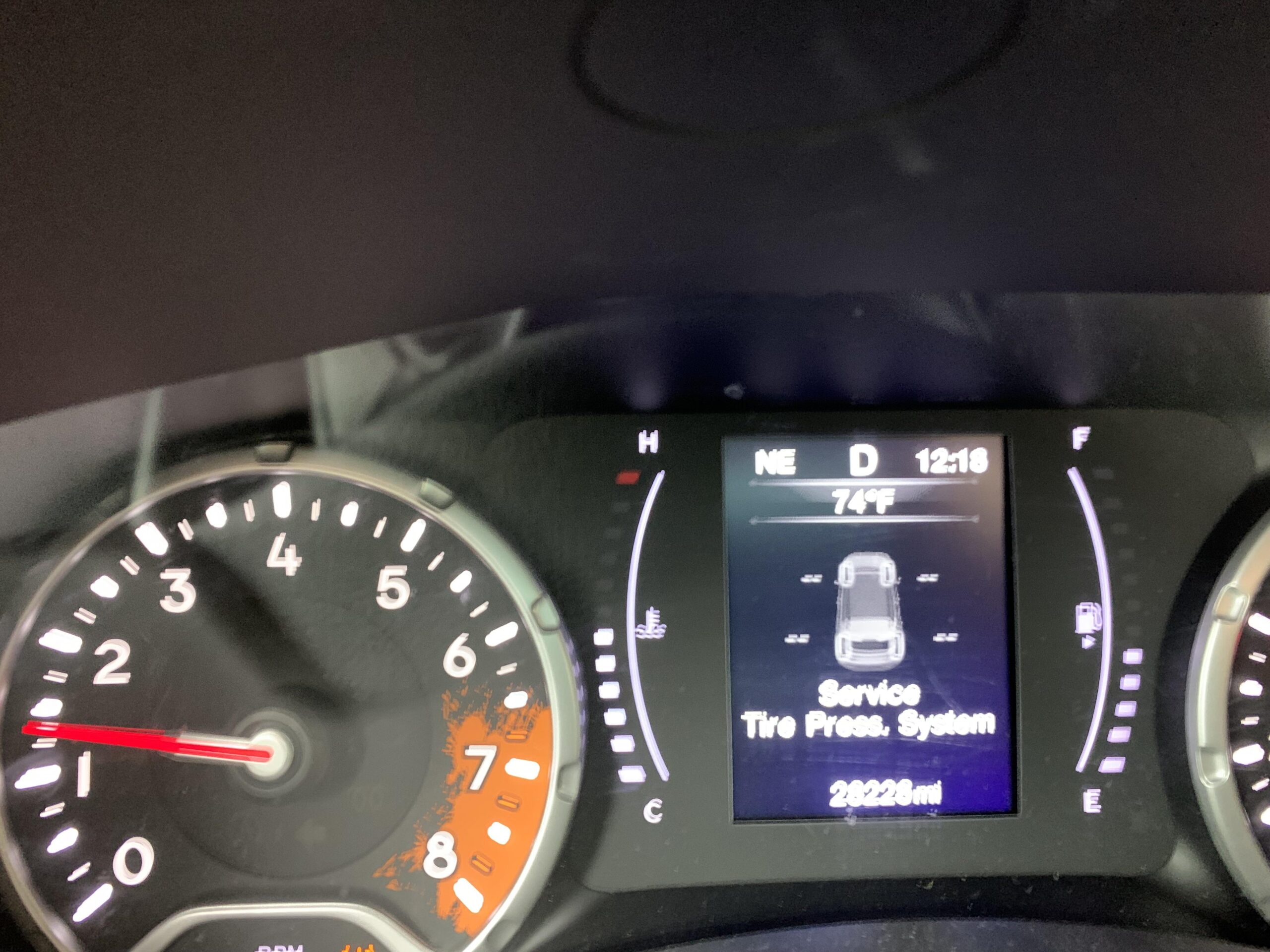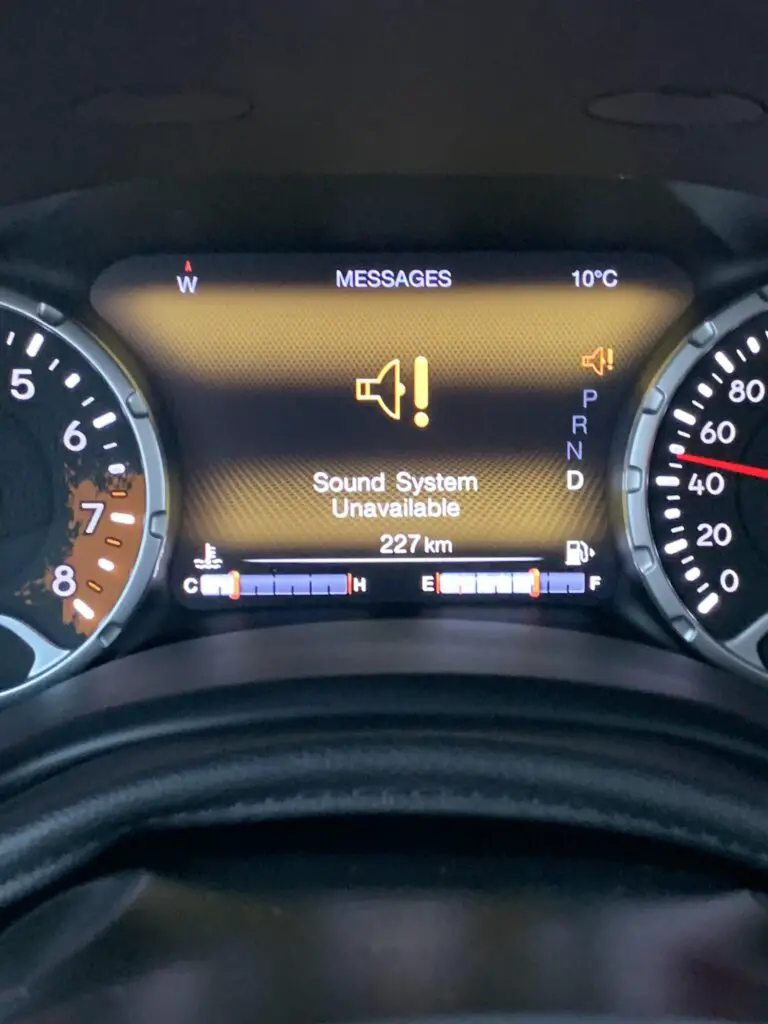Jeep Service Tire Pressure System
The Jeep Service Tire Pressure System is an essential feature that monitors and alerts the driver of any fluctuations in tire pressure, ensuring optimal safety and performance. By regularly checking and maintaining proper tire pressure, you can prevent accidents, improve fuel efficiency, and prolong the lifespan of your tires.
This article explores the importance of the Tire Pressure System in Jeeps, its functionality, and the steps you can take to ensure its proper operation.
Discover how this feature contributes to a smoother and safer driving experience, and learn how to troubleshoot common issues that may arise with the Jeep Tire Pressure System.
The Importance Of Maintaining Proper Tire Pressure
The Importance of Maintaining Proper Tire Pressure cannot be overstated. Maintaining the right tire pressure offers numerous benefits for your Jeep as well as your safety.
Firstly, it enhances fuel efficiency, reducing your vehicle’s carbon footprint and saving you money at the pump.
Secondly, it improves handling and maneuverability, ensuring a smoother and more comfortable ride.
Additionally, maintaining optimal tire pressure promotes even tire wear, extending their lifespan and reducing the need for frequent replacements. Maintained tire pressure also improves traction and braking, enhancing your vehicle’s performance and safety in various road conditions.
On the other hand, driving with incorrect tire pressure can have negative effects. Underinflated tires increase rolling resistance, leading to decreased fuel efficiency.
Overinflated tires, on the other hand, can cause uneven wear patterns and compromise your vehicle’s stability. Therefore, regular tire pressure checks and adjustments are crucial for maintaining optimal performance, safety, and longevity for your Jeep’s tires.
Understanding The Tire Pressure Monitoring System (TPMS)
The tire pressure monitoring system (TPMS) is an important feature in Jeep vehicles as it helps to ensure optimal tire pressure for safe driving. TPMS serves the purpose of monitoring and alerting drivers about tire pressure levels.
It works by utilizing sensors located inside each tire that constantly measure the tire pressure and transmit the data to the TPMS control module.
This system is crucial as correct tire pressure is essential for vehicle safety. With low-pressure tires, there is an increased risk of blowouts, reduced traction, and decreased fuel efficiency.
On the other hand, over-inflated tires can lead to poor handling and uneven tire wear.
Having a properly functioning TPMS in your Jeep vehicle provides peace of mind and helps ensure a safe driving experience.
It is recommended to regularly check tire pressure and address any issues promptly to maintain optimal tire performance and prolong the lifespan of your tires.
Common Issues With Jeep Tpms
The Jeep TPMS (Tire Pressure Monitoring System) plays a crucial role in ensuring the safety and performance of your vehicle. However, there are a few common issues that Jeep owners may encounter with their TPMS. One of the most prevalent issues is the low tire pressure warning. This warning light indicates that one or more of your tires have low pressure and need to be inflated. It is important to note that the recommended tire pressure can differ depending on the Jeep model, so referring to the owner’s manual is essential. Another issue that can arise is TPMS sensor malfunction. This can result in inaccurate pressure readings or a persistent warning light. In such cases, it is advisable to have the sensor checked or replaced by a certified mechanic. Additionally, it’s important to reset the TPMS after any tire maintenance or replacement. This ensures that the system recognizes the new pressure levels and provides accurate readings. |
Troubleshooting Tpms Warnings
Jeep owners can resolve TPMS warnings by troubleshooting the tire pressure system. Follow our step-by-step guide to address any issues and ensure optimal performance.
| Step 1: Check tire pressure | Ensure all tires are properly inflated to the recommended pressure level. Low tire pressure can trigger TPMS warnings. |
| Step 2: Inspect tire condition | Look for any visible signs of damage or wear on the tires. Damaged tires may cause TPMS alerts. |
| Step 3: Inspect TPMS sensors | Inspect the sensors for any signs of damage or malfunction. Faulty sensors can lead to inaccurate TPMS warnings. |
| Solution 1: Inflate tires properly | If tire pressure is low, add air to reach the recommended level. Use a quality tire pressure gauge for accurate results. |
| Solution 2: Replace damaged tires | If tire condition is poor, replace the damaged tires with new ones to ensure proper functioning of the TPMS. |
| Solution 3: Repair or replace faulty sensors | If TPMS sensors are malfunctioning, have them repaired or replaced by a qualified technician to eliminate warning alerts. |
Proper Maintenance Of Jeep Tpms
The proper maintenance of your Jeep’s tire pressure monitoring system (TPMS) is crucial for ensuring optimal performance and safety on the road. Regularly checking and adjusting the tire pressure is a key aspect of TPMS maintenance.
It is important to use accurate pressure gauges to ensure precise measurements, avoiding the risk of overinflating or underinflating your tires.
Each Jeep model has a recommended tire pressure specified by the manufacturer. Following the recommended pressure not only promotes better fuel efficiency but also enhances tire longevity and overall performance.
Operating your Jeep with incorrect tire pressures can lead to uneven wear, reduced traction, and potential handling issues.
By regularly inspecting and adjusting the tire pressure according to the recommended specifications, you can maximize your Jeep’s TPMS efficiency, extend the life of your tires, and prioritize safety for yourself and your passengers.
Best Practices For Tire Pressure Maintenance
Proper maintenance of tire pressure is crucial for ensuring optimal performance and safety of your Jeep.
One important factor to consider is the effect of temperature on tire pressure. As temperatures fluctuate, so does the air inside your tires. Understanding this relationship is essential for accurate measurements.
An effective method for ensuring accurate tire pressure measurements is to monitor your TPMS regularly.
The Tire Pressure Monitoring System (TPMS) is designed to alert you when the pressure in your tires is too low or too high.
By paying attention to these alerts, you can promptly address any issues and maintain the right tire pressure for your Jeep.
Professional Jeep Tpms Services
When it comes to maintaining your Jeep’s tire pressure monitoring system (TPMS), it is important to seek professional assistance for any issues that may arise.
Professional Jeep service centers offer a range of services to diagnose and address TPMS problems. These services include sensor replacement, calibration, and troubleshooting.
By entrusting your Jeep’s TPMS to professionals, you can ensure that the system is properly maintained and functioning optimally, promoting safety on the road.
One of the key benefits of seeking professional assistance is the expertise and knowledge that technicians possess.
They are trained to accurately diagnose TPMS issues and provide appropriate solutions, saving you time and effort.
Additionally, Jeep service centers usually offer warranties on their services, giving you peace of mind knowing that any potential future problems will be covered.
Cost considerations should also be taken into account when seeking professional TPMS services.
While the initial investment may seem higher than attempting DIY solutions, professional assistance can prevent costly mistakes and further damage to your Jeep’s TPMS.
Ultimately, the safety and efficiency of your Jeep’s TPMS can be maximized by utilizing the expertise of professionals in maintaining and resolving any issues that may arise.

Credit: www.youtube.com
Choosing The Right Service Provider
When choosing a service provider for the Jeep Service Tire Pressure System (TPMS), it is crucial to research and select a reputable center.
Look for a service provider with experience and expertise in TPMS repair and maintenance. Knowledge of the system is essential to ensure accurate diagnosis and effective repairs.
Additionally, customer reviews and testimonials can provide valuable insights into the quality of service offered by the center.
Pay attention to feedback regarding the center’s professionalism, knowledge, and customer satisfaction.
Positive reviews and recommendations can give you confidence in the service provider’s ability to handle your Jeep TPMS needs.
By selecting a reputable service center, you can ensure that your Jeep’s tire pressure system is properly maintained and repairs are conducted with precision and skill.
FAQs On Jeep Service Tire Pressure System
What Does It Mean When It Says Service Tire Pressure System?
When you see the message “service tire pressure system,” it indicates that there may be an issue with the tire pressure monitoring system in your vehicle. It’s important to have it checked by a professional to ensure the tires are properly inflated and safe for driving.
What Does Service Tire Pressure System Mean On A Jeep?
The message “Service Tire Pressure System” on a Jeep means there is an issue with the vehicle’s tire pressure monitoring system. It’s important to have this system checked and repaired by a professional to ensure proper tire pressure and safe driving conditions.
How Do You Reset The Tire Pressure Monitoring System On A Jeep?
To reset the tire pressure monitoring system on a Jeep, follow these simple steps. Start the vehicle and let it idle. Press and hold the Tire Pressure Monitoring System Reset button until the TPMS indicator light blinks three times. Release the button and wait for the light to turn off.
That’s it!
What To Do When It Says Service Tire Monitor System?
When you see the message “service tire monitor system,” you should check your tire pressure and visually inspect your tires for any damage. If the problem persists, bring your vehicle to a certified mechanic for further diagnosis and repair.
Conclusion
Maintaining proper tire pressure is crucial for the performance and safety of your Jeep.
With its Tire Pressure Monitoring System (TPMS), Jeep ensures that you stay informed about the condition of your tires at all times.
By regularly checking and adjusting tire pressure, you can enhance fuel efficiency, extend tire life, and reduce the risk of accidents.
Make it a priority to take care of your Jeep’s tire pressure system and enjoy a smooth and reliable ride every time.





